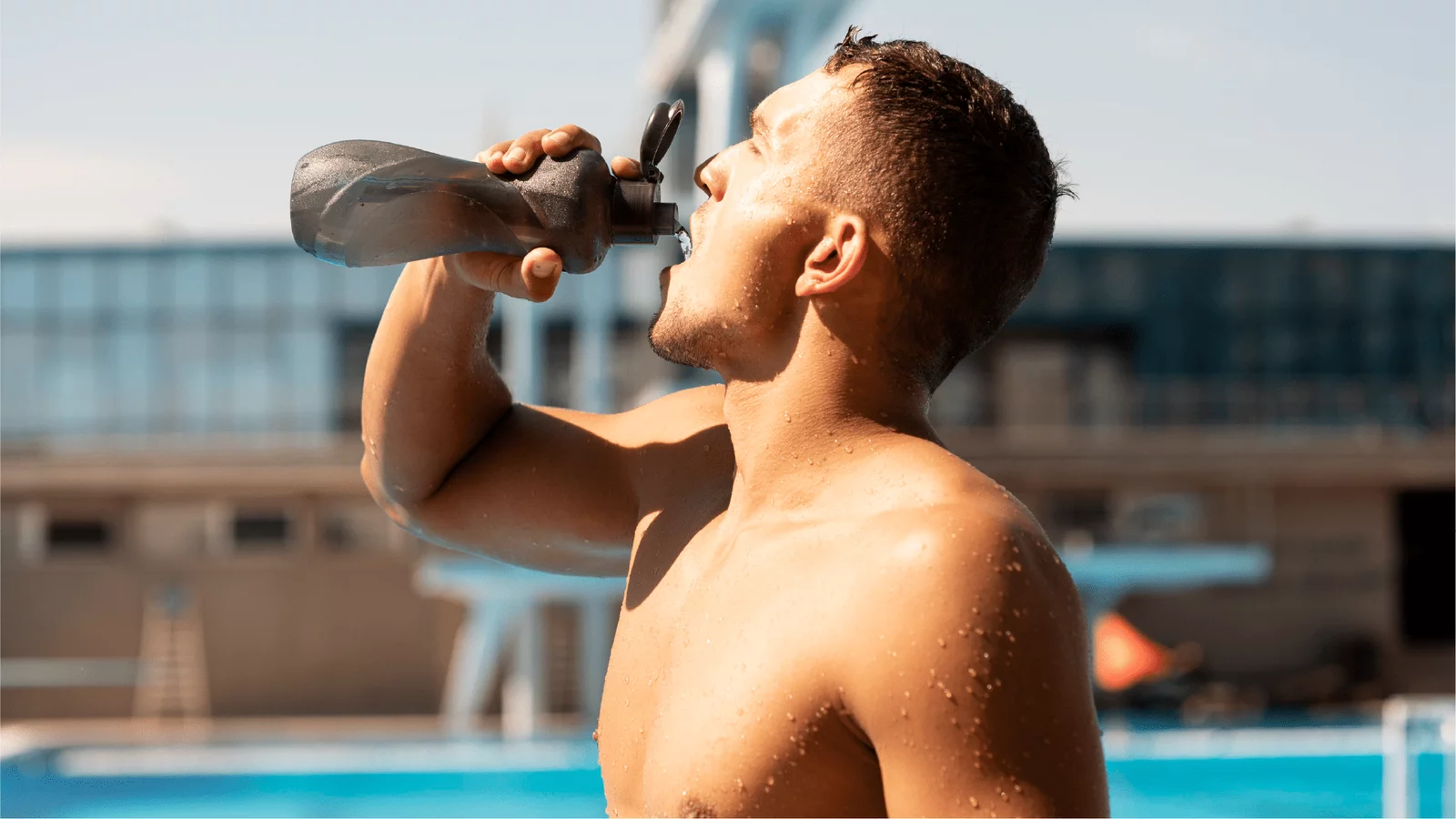Hydration is a crucial aspect for human body health, especially during hot periods of the year. This becomes even more important when it comes to aquatic activities, such as swimming in the pool.
Although it may seem like pool water is enough to keep the body hydrated, in reality, this is not true. Pool water can even contribute to dehydration, making it essential for swimmers to maintain adequate fluid intake.
Dehydration occurs when the body loses more water than it consumes, which can lead to symptoms such as fatigue, headache, nausea, and dizziness. In the pool, it is easy to lose track of time and forget to drink water regularly, especially if you are having fun with friends and family.
It is important to remember that pool water is not sufficient to hydrate the body, as it does not contain essential electrolytes and nutrients needed to maintain the body’s balance.
Maintaining adequate hydration in the pool is not only important for overall well-being but can also improve physical performance. When the body is dehydrated, the ability to perform physical exercises is reduced, which can hinder the effectiveness of your water workout.
Moreover, hydration helps regulate body temperature, which is particularly important in hot and humid environments like the pool area. With adequate fluid intake, you can keep your body hydrated and enjoy the pool to the fullest without sacrificing your health or performance.
Why is hydration in the pool so important?
Hydration is crucial in any physical activity, but it is often overlooked when we are in the pool. Many people believe that since they are immersed in water, they do not need to worry as much about hydration. However, this couldn’t be further from the truth.
Exposure to the sun, water temperature, and the physical activity we engage in the pool can lead to dehydration, which is a dangerous condition that can cause a range of health problems.
In addition, proper hydration is essential to maintain performance and endurance during the time we spend in the pool. Without adequate hydration, the body can feel fatigued, dizzy, and even experience muscle cramps. This can affect not only our enjoyment in the pool, but also our safety.
What are the benefits of staying hydrated?
Staying hydrated is crucial for the proper functioning of the human body and brings numerous health benefits. When the body is well-hydrated, the circulatory system works better, delivering nutrients and oxygen to all cells in the body.
In addition, hydration helps regulate body temperature, eliminate toxins, and keep joints lubricated. Another benefit of hydration is the improvement of cognitive function. Studies show that people who drink water regularly throughout the day tend to perform better in tasks that require concentration and memory.
Hydration also helps keep the skin healthy and beautiful by transporting nutrients to skin cells and eliminating toxins. In the pool, hydration is especially important as chlorinated water can dehydrate the body more quickly. Additionally, the heat of the sun and the physical effort of swimming can increase the need for fluids.
Therefore, drinking water regularly while having fun in the pool is essential for maintaining health and well-being.
How to identify if you are dehydrated?
Some ways to identify if you are dehydrated include:
- Thirst: The sensation of thirst is a common sign of dehydration. If you feel thirsty, it is important to drink water immediately.
- Dark urine: The color of your urine can indicate if you are dehydrated or not. If your urine is very dark, you likely need to drink more water.
- Dry skin: Dry and less elastic skin is a sign of dehydration. If you notice that your skin is dry or that your wrinkles take longer to return to normal after being pressed, it is important to drink more water.
- Fatigue: Fatigue and lack of energy can also be symptoms of dehydration. When you are dehydrated, your body does not have enough water to keep all your organs functioning properly, which can lead to fatigue and lack of energy.
- Dizziness: Dizziness and a feeling of light-headedness can be signs of dehydration. When you are dehydrated, your body does not have enough water to maintain your balance and stability, which can cause dizziness.
- Dry mouth: A dry mouth is another common sign of dehydration. If you feel that your mouth is dry, it is important to drink water to hydrate your body.
Always remember to drink water regularly, especially when you are in hot environments or when you are engaging in physical activities. Paying attention to the signs of dehydration can help you prevent health problems related to lack of water in the body.
Keep your hydration in check at the pool and take care of your health!
It’s already clear that to avoid cramps, dizziness, headaches, and all those sunstroke symptoms, properly hydrating before and during your time at the pool is still the best and safest alternative, right?
And don’t forget that when we talk about hydration at the pool, it’s not just water bottles that can provide the necessary support. Fruits full of water, such as watermelon, peach, and grapes, are healthy and can help keep both kids and adults healthy for much longer.

